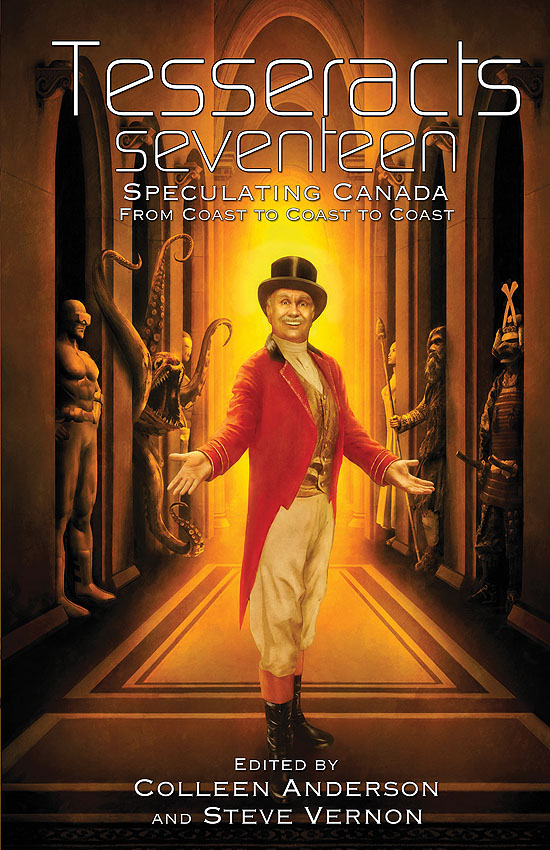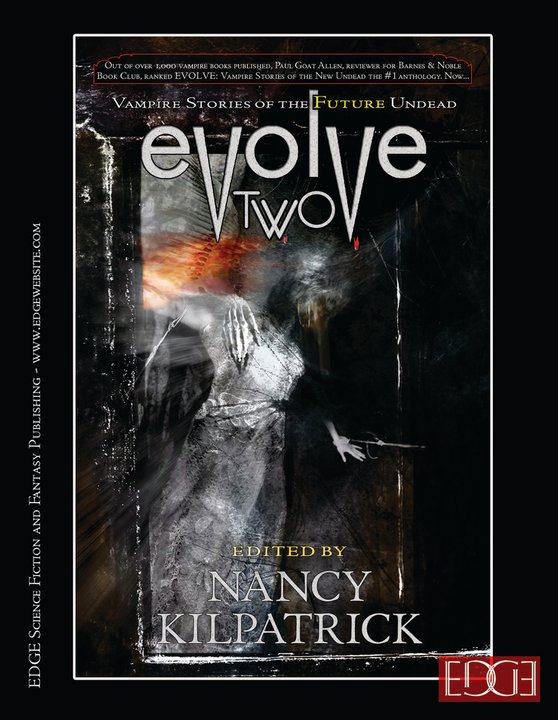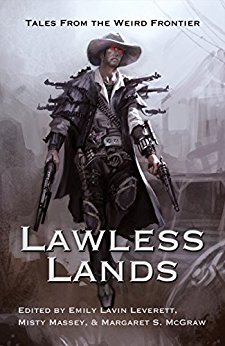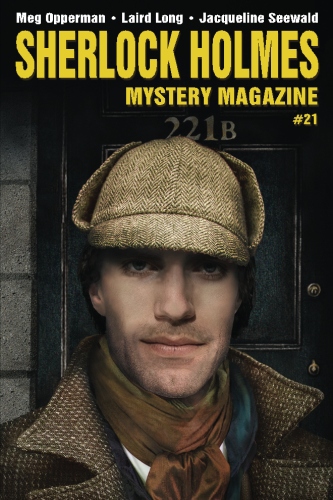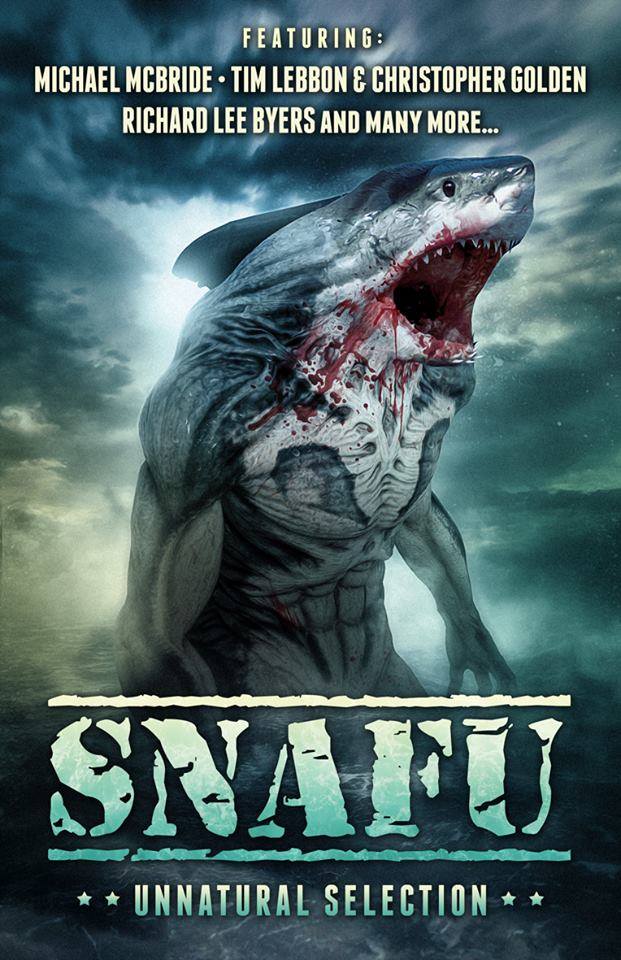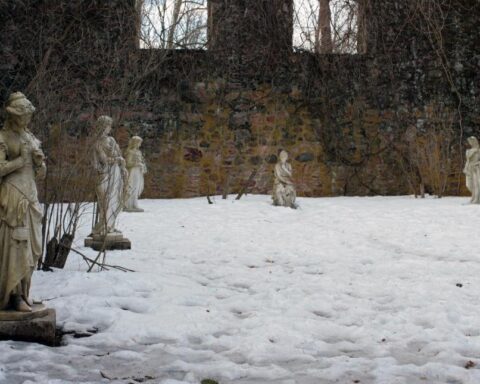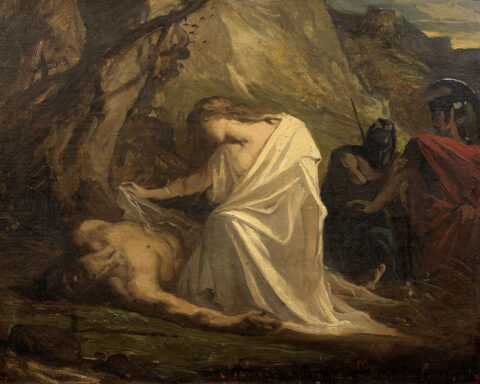
From the vast farmlands of southern Ontario to the rugged, sandy beaches of Nova Scotia, Dave Beynon recently made the trek cross country and relocated around the Lunenburg area. A master at the science fiction genre, Dave’s talent for short stories has been recognized through an honourable mention in The Best Horror of the Year in 2011 while his novel The Platinum Ticket was shortlisted for the Terry Pratchett Prize. His work has been published in several periodicals and anthologies, including but not limited to “Symbiosis” in Evolve Two, “The Lighthouse Keeper’s Wife” in Tesseracts Seventeen, and “The Stranger in the Glass” in Lawless Lands.
During society’s shared experiences of isolation and virus anxiety, Dave has turned towards the academic sphere — both as an educator and a pupil. Now sharing his knowledge of science fiction with the students of Conestoga college, he also recently received his Masters in the art of novel writing from Middlesex University in England. In between enlightening others and himself, Dave spends his time trying to stay sane during the pandemic, which include constant walks to a nearby idyllic lake and weekly chats with a playwright friend to harness their creative energy. The pressure to thrive under the pandemic’s harsh conditions is something he scoffs at, and advises any student who receives the increasingly popular question “what skills have you learned during the pandemic?” to answer with: “I learned to survive a fucking pandemic.” He maintains an optimistic attitude regarding our future, as long as we approach each other with empathy and compassion.
This was the first time I met Dave, and though our interaction was limited by the two dimensional rectangular confinement of a Zoom call, his charming demeanor and easygoing manner radiated from the screen. It is my absolute delight and honour to have the opportunity of spreading Dave’s inspiring words to the world.
You’ve written quite a bit of speculative fiction, for those out there who don’t know, can you explain what speculative fiction is and what draws you to this specific genre?
Speculative fiction is a broad umbrella. It basically covers three major genres: science fiction, horror, and fantasy. There’s a lot of bleed through with these three genres where they merge and combine together quite well. I believe Robert Heinlein coined the term. The reason I’m kind of drawn to speculative fiction is the freedom that it gives you to explore things. You can tackle difficult subject matter, like disenfranchisement of a population, it’s easier to make them all zombies or vampires. Then you can explore the human reaction to that more deeply and how horrible it can be, but from the human perspective we’re doing nothing wrong.
You grew up on farmland in Southern Ontario and have recently moved out to Nova Scotia, how does the geographical landscape you’re surrounded by influence your writing?
Most of my writing was informed by where I was living. I tend to write about small town stuff since that’s what I’m most familiar with. I’ve lived in big cities, but I find that relationships in small towns are different. Interestingly enough the work in process I have right now takes place in New Hampshire for the most part, which is much closer to where I’m at now. So, once Covid is done, a road-trip is probably going to be in order so I can get a feel for the area. But I think it’s smart to use your area to inform your writing
You once edited a full novel in 36 hours – a trial you do not recommend – so, can you explain your typical editing process?
Well I’m not much of an outliner, I basically let the characters pull me whichever way they want to go. I have a broad idea of what the story’s going to look like, usually coming from an interesting “what if?” premise or an interesting thought for a character. As that character grows, sometimes they want to go in a different direction than where you thought it was going to go, and I’ve always found it best to let the character pull you where they want to go because then your imagination takes you into new and wonderful things. But I highly recommend, no matter how tempting it is to get to a point to go back and clean things up after you re-read it, to just get it all out in as quick a journey as you can. If a story is aching to get out, just write, write, write, and get it out. Worry about cleaning it up later. Even if you’ve got character names you don’t care for or even know at the time, don’t worry about it—just call them “character A” and fill that in later.
Then, I suggest shelving it for six weeks to two months so you can come back to it with fresh eyes. This is especially helpful for two reasons: you’ll catch a lot of your mistakes and typos, and it will read like somebody else wrote it. You’ll find redundant words and phrases that you use too often, but you’ll also find really delightful things that you can hardly believe you wrote. It’s really a treasure, when you’re reading through something you wrote weeks ago and you stumble upon a really nice turn of phrase or a really good description that just captures the moment, or a good back and forth with dialogue. It’s like a gift to yourself.
Several of your works, such as Symbiosis from 2011 and The Last Repairman from 2014, touch upon the effects of deadly pandemics on society, sometimes approaching apocalyptic territory. How do you feel your stories hold up in representing our current state of the world? Did you have an idea that almost a decade later your writings would resonate so profoundly to our real lives?
I didn’t assume we were heading so quickly into a pandemic, though I was aware of the approximately 100 year cycle for big pandemics so we were kind of due for one. It definitely was on the horizon for a lot of people writing speculative fiction since they knew our next big scary thing is probably some sort of disease. The idea for Symbiosis came from a story about a nightclub in Singapore where they were taking people’s temperature, and it was a really unusual thing because they wouldn’t let people in if they were spiking a fever in an attempt to halt the spread of disease. This story just gripped me and made me think what would happen, and this goes back to those “what if” questions—what would happen if someone was doing their due diligence scanning people for temperature and all of a sudden someone registered as room temperature? That’s how vampires are discovered in Symbiosis.
In The Last Repairman, it’s a dog flu that wipes out humanity, and it’s taking a look at how the rich are better suited to handle a pandemic, and we’ve seen that people with wealth and means are able to better isolate themselves. Let’s face it, when you walk down in your twenty-five room mansion with people delivering stuff to your door, it’s a lot easier than living in a one bedroom apartment without a balcony trying to order groceries you can hardly afford. In The Last Repairman it takes it to another step where augmented people, and only the incredibly wealthy can afford augmentation, have advantages of surviving with filtered lungs and artificant hearts. It’s weird reading them again now, it makes me feel so…prescient. But it’s not really, it was just taking stuff at the time and projecting it forward to tell a story.
The two stories previously mentioned portray vastly different endings that comment on how humanity may react in moments of crisis – in Symbiosis we see characters come together in solidarity and compassion, while in The Last Repairman the reader is provided with a grim betrayal that suggests only the strongest will survive. Which ending do you think is more reflective of our current state of the world and why? Which ending do you feel is more impactful, especially considering the current state of the world?
In Symbiosis I really like the idea that two lonely people have something to give each other that doesn’t cost either one of them a lot. I think we’ve seen a lot of that during the pandemic. Even though we’ve been forced to distance and mask up, I think people’s better nature, for the most part, has come out of this. There’s a great sense of solidarity. We all see the stories of anti-vaxxers and anti-maskers with their rallies and rants on social media, but when you take a look at the actual vaccination figures where we’re projecting an 80 percent population vaccination rate and currently in Ontario it’s around 70 percent. That proves to me that the naysayers are the small, but loud, minority. It’s usually the loud minority voice that gains a lot of attention but doesn’t reflect reality. I think we’ve seen a lot of coming together and changes of habits on a societal scale, which is amazing. From a climate point of view, I hope we don’t get back to “normal”—I hope we’re able to find a good work-life balance where we commute less because we hit targets for reducing carbon emissions in the first few months of the pandemic on a world scale. Though it might not be sustainable it’s definitely a step in the right direction.
In The Last Repairman, it’s more of a cutthroat world, it was a bigger pandemic with fewer survivors. The people who did survive were used to getting their way, and when you have a bunch of people used to getting their own way coming in contact with each other, you tend to have conflict. In Symbiosis we were looking at prejudice towards the vampires and in the last repairman you see the dog-eat-dog world of the corporate world survive after the pandemic. Though it should also be noted that in the very end the last repairman and Rudy end up together.
You’re used to being the one asking questions rather than answering them with your TV series “Turning Pages” that ended in 2016 where you interviewed authors about their experiences with writing and publishing. What was your favourite part about interviewing such a diverse array of authors about their work?
It was a lot of fun, it was a good vehicle for interviewing because I was a part of the Elora Writers Festival and we had about five or six ready-made interviews that we could do each year after the festival. We never had a single one of our guests not opt to be interviewed on the show. It’s so cool because everyone has different habits and writing styles. One of the interviews I enjoyed doing the most was Douglas Gibson, who is not only a great writer on his own but has also edited basically everyone in Canadian literature from 1978 onwards. Someone he currently edits is Terry Fallis. What an interesting guy with such a huge overview of Canadian literature, referencing friendships with the likes of Robertson Davies and Northrup Frye. It may seem like such shameless name-dropping, but when you speak to him and listen to him talk about his relationships with these people and you realize he knows how incredibly fortunate he was to be on the Canadian literary scene at the time and appreciates every second that he had.
You’re now a professor at Conestoga college teaching science fiction. While you’re in a position to enlighten and educate students, what is the most surprising thing you’ve learned, either about yourself or about the craft of writing, from interacting with students?
Well the one thing I’ve learned is that I really enjoy teaching. People were telling me forever that I should teach and that I should have been teaching for years. It’s very satisfying and very fulfilling. The interaction with students, both young and mature, is finding all these different perspectives. The thing that’s great about writing is that as you share knowledge with students, students are sharing knowledge back. I don’t know a lot about Rick and Morty, I haven’t invested the time, but I want to because I’ve had students who have been excited about it. I haven’t had an essay about Rick and Morty yet, but I want one. It’s interesting because I learn about different video games that are out there since we talk about science fiction in all its forms.
I have a number of international students, and I had a few Indian students who were having trouble with the concept of science fiction. I asked them if there was anything from Indian TV that might be comparable, and after talking amongst themselves they said the only thing they could think of was Krrish. It’s this amazingly wild story about this guy who becomes the avatar of Krishna, while remaining his same human self, and he battles against a mad scientist who uses technology to combat him. So here’s something I’ve learned, and now I can use it while I’m teaching. If I have students from India or Pakistan who are struggling I ask them if they’ve seen Krrish, and it’s amazing because all of a sudden I get all this cred that I didn’t have before. But it’s also great because the lightbulb goes off as they connect something they know to science fiction.
What advice would you give to writers struggling to find inspiration during these stressful times?
My first bit of advice would be not to write a pandemic story—not if you want to get published. If you want to work out your feelings, about what you’ve been going through, then go ahead. But don’t try and get it published. Last year when I was working on my Masters I spoke with a publishing director and my agent in Britain. I asked them what they think the next trend would be, and the one thing they could almost guarantee in the next eighteen months would be a whole pile of, mostly bad, pandemic fiction. Because people write about what’s going on at the time, so try to avoid writing pandemic fiction for publication.
Science fiction is strong—the 21st century is the age of the superhero. If you have a refreshing, new take on the superhero that hasn’t been done before, that would be something somebody would love to see. But it has to be new. Maybe go in the other direction and go with a happy superhero story? Climate fiction is going to be big as we go forward. The number one seller in Britain at the time when I was doing my Masters was crime fiction. There’s a huge appetite for crime fiction, always has been always will be. Most of my stories come from the “what if” questions, sometimes you’ll be listening to the news and think “what if this happened instead.” Though it’s hard to say what is going to sell.
How have you been writing during the pandemic? Do you have any upcoming works you’d like to share with the world?
As I mentioned earlier, at the height of the pandemic I was working on a Masters in novel writing from Middlesex University in London. So part of that was putting together a portion of a novel, which is a crime thriller without any sort of speculative aspects. Other than that, the pandemic has really stalled that part of my creativity. I just relocated to Nova Scotia and I’ve been going through a lot of changes, developing some new courses and stuff like that, there’s been a lot going on. But I have weekly Zoom meetings with a good friend of mine who’s a playwright, and we kind of keep each other creatively honest. He’s written a new play during the pandemic, which is fantastic, but he’s another one of these people who suddenly gets a moment of self-doubt and wonders if it could be better in another direction. So while the pandemic has really slowed my output, this weekly Zoom meeting with my colleague is really going to keep me focused moving forward, and I just need to build in the time, which is usually easier said than done.

